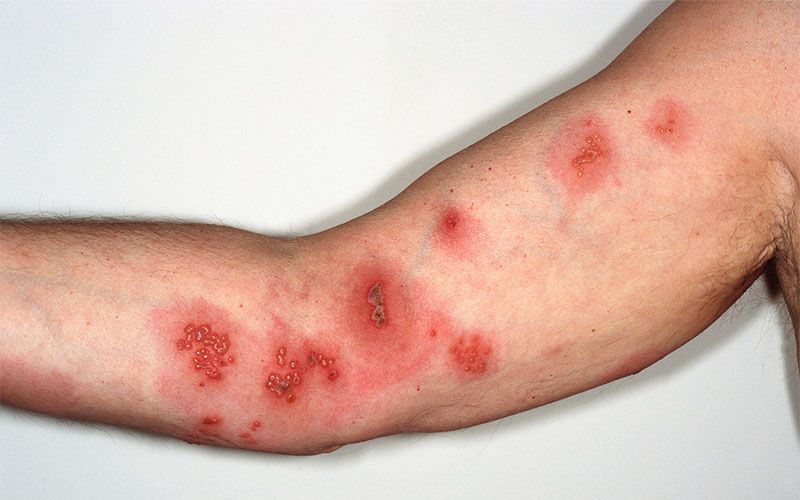How Hormonal Changes Can become Life Threatening if Left Unchecked! - Find Here
Hormones are important for every action of life, it helps in digestion, reproduction, metabolism growth and mood control.
Hormones are organisms which are transferred in tissues in the form of blood or liquid to push specific cell or tissues into action.
Hormones are substances that affect the actions of parts of our body.
.jpg)
Types of Hormones and their importance
-
Thyroid Hormones
It mainly releases two hormones triiodothyronine (T3) and thyroxine (T4) which helps to manage the metabolism of our body.
These hormones control our body weight, energy levels, internal body temperature, skin, and hair.
-
Insulin Hormones
These hormones are delivered by the pancreas located in the abdominal cavity like a leaf organ behind the stomach.
It allows the body to use glucose or sugar from carbohydrates and store it for future use. It keeps the blood sugar level in control.
-
Estrogen Hormones
It is a female sex hormone produced by ovaries. It is important for reproduction, menstruation, and menopause.
Lack of estrogen in the female body increases the risk of breast cancer, uterine cancer, depression, moodiness etc. And also, it effects on skin, acne, hair loss, thinning skin etc.
-
Progesterone Hormones
This hormone is created in the ovaries when a woman gets pregnant. It plays an important role in pregnancy.
It helps the body to prepare for conception, pregnancy and monthly cycle. It also plays a role in sexual content. It helps to build up a menstrual cycle when the pregnancy does not obtain.
-
Prolactin Hormones
This hormone is released by the pituitary glands after child birth for lactation, which enables females to breastfeed.
It also plays an important role in fertility by the help of inhibiting follicles stimulating hormone (FSH) and gonadotropin-releasing hormone (GnRH).
-
Testosterone Hormone
It is a male sex hormone. It is an anabolic steroid by nature which helps in growing body muscles.
In males, it plays an important role in the development of male reproductive tissues, tests, and prostate.
Lack of testosterone in men causes the abnormalities including frailty and bones loss.
-
Serotonin Hormones
This hormone affects our mood, it is also connected with our learning and memory, regulating sleep, digestion, some muscular functions etc.
Due to the imbalance of serotonin, the brain does not produce enough hormones to regulate mood or stress.
Lack of serotonin causes depression, migraine, weight gain, insomnia, craving of carbohydrate etc.
High level of serotonin in the body causes agitation, stage of confusion, sedation etc.
-
Cortisol Hormones
This hormone helps you stay healthy and energetic. It is produced by the adrenal gland and controls physical and psychological stress.
In the risky condition, it increases heart rate, blood pressure, respiration etc. High level of cortisol causes an ulcer, high blood pressure, anxiety and high level of cholesterol.
And the condition of low level it causes alcoholism and responsible for chronic fatigue syndrome.
-
Adrenaline Hormones
It is called an emergency hormone because it makes the individual think and responds quickly to the stress.
It expands the metabolic rate, dilation of blood vessels going to the heart and the brain. In a stressful situation, adrenaline quickly releases into the blood.
-
Growth Hormones
It is a protein hormone which is combined and produced by the cells called somatrophs.
It helps to stimulate growth, reproducing cell, regenerate cell and boosts metabolism. It is necessary for human development.
Do you know?
97% of estrogen imbalance causes breast cancer.
Symptoms of hormonal imbalance
.jpg)
When you have a hormonal imbalance small changes can have serious effects throughout your whole body.
Some common symptoms which affect men and women both were listed:
- weight gain
- fatigue
- increased sensitivity to cold or heat
- constipation or more frequent bowel movements
- dry skin
- puffy face
- unexplained weight loss (sometimes sudden)
- increased or decreased heart rate
- muscle weakness
- frequent urination
- increased thirst
- muscle aches, tenderness, and stiffness
- pain, stiffness, or swelling in your joints
- thinning hair or fine, brittle hair
- increased hunger
- depression
- decreased sex drive
- nervousness, anxiety, or irritability
- blurred vision
- sweating
- infertility
- a fatty hump between the shoulders
- rounded face
- purple or pink stretch marks
Here some symptoms which only affect on adult women’s body:
- puberty
- pregnancy
- breastfeeding
- menopause
- heavy or irregular periods with missed periods stopped period and frequent period
- hirsutism, or unnecessary hair on the face, chin, or other parts of the body
- spots on the face, chest and upper back
- thinning hair or hair loss
- weight gain or trouble losing weight
- darkening of the skin, especially along neck creases, in the groin, and underneath breasts
- skin tags
- vaginal dryness
- vaginal atrophy
- pain during sex
- night sweats
Fact: After menopause, there is no reason to continue hormone replacement therapy.
These are the symptoms found in adult men’s body:
- development of breast tissue
- breast tenderness
- erectile dysfunction
- loss of muscle mass
- decreased sex drive
- infertility
- a decrease in beard and body hair growth
- osteoporosis, the loss of bone mass
- difficulty concentrating
- hot flashes
There are some symptoms found in children only:
In girls:
- the period does not begin
- breast tissue does not develop
- growth rate does not increase
In boys:
- muscles mass does not develop
- the voice does not deepen
- body hair grows lightly
- penis and testicular growth is impaired
- excessive growth of the arms and legs in relation to the stem of the body
- gynecomastia, the development of breast tissue
Causes of hormonal imbalance
.jpg)
There are so many causes of hormonal imbalance. Causes depend on which hormones or glands are affected.
The causes of hormonal imbalance are listed:
- Diabetes
- Hypothyroidism(underactive thyroid)
- Hyperthyroidism(overactive thyroid)
- Hypogonadism
- Cushing syndrome
- Hormone therapy
- Medications
- Thyroiditis
- Hyperfunctioning thyroid nodules
- Tumors(benign and cancerous)
- Eating disorders
- Congenital adrenal hyperplasia
- Stress
- Adrenal insufficiency
- Cancer treatment
- Injury and trauma
- Pituitary tumor
Some causes of hormonal imbalance in women are related to the reproductive hormone.
- menopause
- pregnancy
- breastfeeding
- PCOS
- primary ovarian insufficiency
- premature menopause
- hormone drugs like birth control pills
Do you know?
Breast cancer is about 100 times less common among men than women.
Diagnosis and Treatment of hormonal imbalance
.jpg)
These are some diagnostic tests your doctor will suggest:
-
Blood test
Most hormones can be detected in the blood like thyroid, estrogen, testosterone and cortisol levels.
-
Pelvic exam
Through pelvic exam, if you are female your doctor may perform pap smear to analysis unusual lumps, cysts, and tumor.
If you are male, your doctor may diagnose your scrotum for lumps and abnormalities.
-
Ultrasound
An ultrasound machine is used to get images of the uterus, ovaries, testicles, thyroid and pituitary gland from inside.
-
Additional tests
Sometimes even more advanced tests are required:
- biopsy
- MRI
- X-Ray
- thyroid scan
- sperm count
There are some treatments from which doctors diagnose your hormonal imbalance:
- Estrogen therapy
- vaginal estrogen
- hormonal birth control
- metformin
- anti-androgen medication
- testosterone therapy
- thyroid hormone therapy
- flibanserin (addyi)
- eflornithine (Vaniqa)
Complications of hormonal imbalance

- high blood pressure
- diabetes
- high cholesterol
- heart disease
- neuropathy
- obesity
- sleep apnea
- kidney damage
- depression and anxiety
- endometrial cancer
- osteoporosis, or bone loss
- loss of muscle mass
- breast cancer
- infertility
- urinary incontinence
- sexual dysfunction
- goiter
- skin infections
Conclusion
Hormones are responsible for many of your body’s major system. When hormones get out of balance, the symptoms can be developed.
Hormonal imbalance can cause a variety of serious problems, so it’s important to look for treatment as soon as possible.







